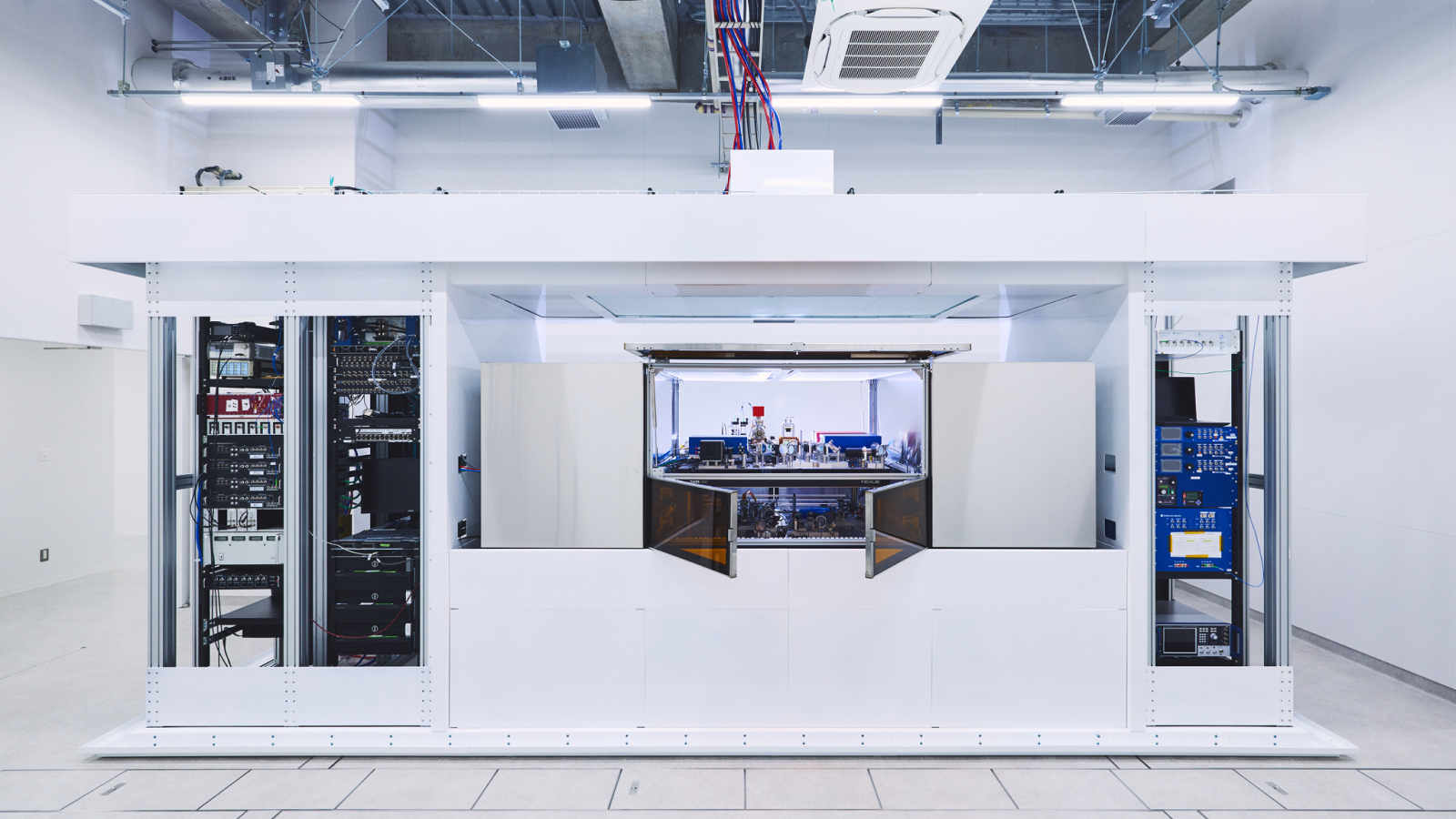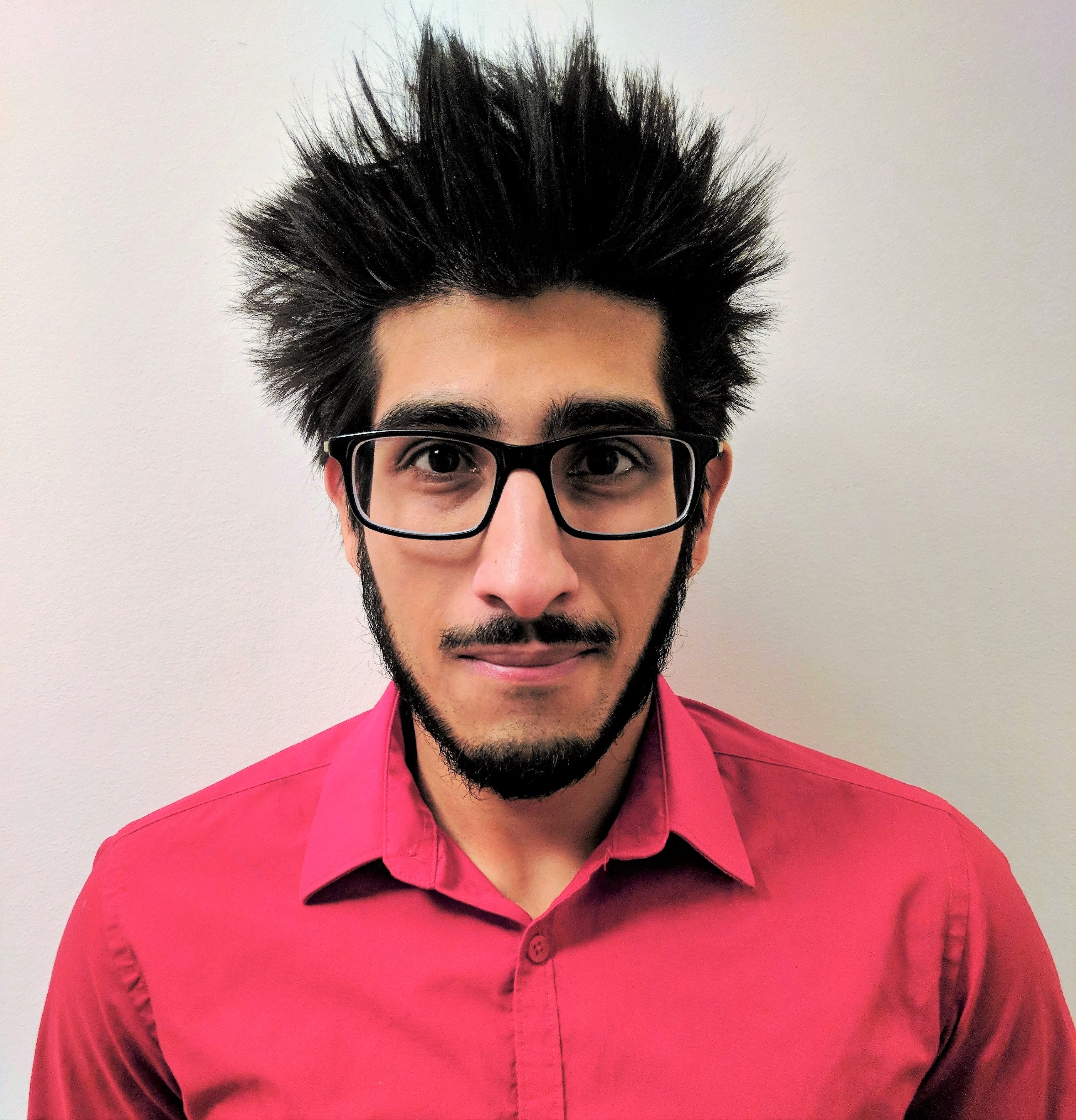Scientists make 'magic state' breakthrough after 20 years — without it, quantum computers can never be truly useful
Scientists demonstrate a process called "magic state distillation" in logical qubits for the first time, meaning we can now build quantum computers that are both error-free and more powerful than supercomputers.

In a world first, scientists have demonstrated an enigmatic phenomenon in quantum computing that could pave the way for fault-tolerant machines that are far more powerful than any supercomputer.
The process, called "magic state distillation," was first proposed 20 years ago, but its use in logical qubits has eluded scientists ever since. It has long been considered crucial for producing the high-quality resources, known as "magic states," needed to fulfill the full potential of quantum computers.
Magic states are quantum states prepared in advance, which are then consumed as resources by the most complex quantum algorithms. Without these resources, quantum computers cannot tap into the strange laws of quantum mechanics to process information in parallel.
Magic state distillation, meanwhile, is a filtering process by which the highest quality magic states are "purified" so they can be utilized by the most complex quantum algorithms.
This process has so far been possible on plain, error-prone physical qubits but not on logical qubits — groups of physical qubits that share the same data and are configured to detect and correct the errors that frequently disrupt quantum computing operations.
Because magic state distillation in logical qubits has not so far been possible, quantum computers that use logical qubits have not been theoretically able to outpace classical machines.
Related: What is quantum superposition and what does it mean for quantum computing?
Get the world’s most fascinating discoveries delivered straight to your inbox.
Now, however, scientists with QuEra say they have demonstrated magic state distillation in practice for the first time on logical qubits. They outlined their findings in a new study published July 14 in the journal Nature.
"Quantum computers would not be able to fulfill their promise without this process of magic state distillation. It's a required milestone." Yuval Boger, chief commercial officer at QuEra, told Live Science in an interview. Boger was not personally involved in the research.
The path to fault-tolerant quantum computing
Quantum computers use qubits as their building blocks, and they use quantum logic — the set of rules and operations that govern how quantum information is processed — to run algorithms and process data. But the challenge is running incredibly complex algorithms while maintaining incredibly low error rates.
The trouble is that physical qubits are inherently "noisy," which means calculations are often disrupted by factors like temperature changes and electromagnetic radiation. That's why so much research has centered on quantum error correction (QEC).
Reducing errors — which occur at a rate of 1 in 1,000 in qubits versus 1 in 1 million, million in conventional bits — prevents disruptions and enables calculations to happen at pace. That's where logical qubits come in.
"For quantum computers to be useful, they need to run fairly long and sophisticated calculations. If the error rate is too high, then this calculation quickly turns into mush or to useless data," study lead author of the study Sergio Cantu, vice president of quantum systems at QuEra, told Live Science in an interview. "The entire goal of error correction is to lower this error rate so you could do a million calculations safely."
Logical qubits are collections of entangled physical qubits that share the same information and are based on the principle of redundancy. If one or more physical qubits in a logical qubit fail, the calculation isn't disrupted because the information exists elsewhere.
But logical qubits are extremely limited, the scientists said, because the error-correction codes applied to them can only run "Clifford gates" — basic operations in quantum circuits. These operations are foundational to quantum circuits, but they're so basic that they can be simulated on any supercomputer.
Only by tapping into high-quality magic states can scientists run "non-Clifford gates" and engage in true parallel processing. But generating these is extremely resource-intensive and expensive, and has thus far been unachievable in logical qubits.
In essence, relying on magic state distillation in physical qubits alone would never lead to quantum advantage. For that, we need to distill magic states in logical qubits directly.
Magic states pave the way for capabilities beyond supercomputing
"Magic states allow us to expand the number and the type of operations that we can do. So practically, any quantum algorithm that's of value would require magic states," Cantu said.
Generating magic states in physical qubits, as we have been doing, is a mixed bag — there are low-quality and high-quality magic states — and they need to be refined. Only then, can they fuel the most powerful programs and quantum algorithms.
In the study, using the Gemini neutral-atom quantum computer, the scientists distilled five imperfect magic states into a single, cleaner magic state. They performed this separately on a Distance-3 and a Distance-5 logical qubit, demonstrating that it scales with the quality of the logical qubit.
"A greater distance means better logical qubits. A Distance-2, for instance, means that you can detect an error but not correct it. Distance-3 means that you can detect and correct a single error. Distance-5 would mean that you can detect and correct up to two errors, and so on, and so on," Boger explained. "So the greater the distance, the higher fidelity of the qubit is — and we liken it to distilling crude oil into a jet fuel."
As a result of the distillation process, the fidelity of the final magic state exceeded that of any input. This proved that fault-tolerant magic state distillation worked in practice, the scientists said. This means that a quantum computer that uses both logical qubits and high-quality magic states to run non-Clifford gates is now possible.
"We're seeing sort of a shift from a few years ago," Boger said. "The challenge was: can quantum computers be built at all? Then it wasL can errors be detected and corrected? Us and Google and others have shown that, yes, that can be done. Now it's about: can we make these computers truly useful? And to make one computer truly useful, other than making them larger, you want them to be able to run programs that cannot be simulated on classical computers."

Keumars is the technology editor at Live Science. He has written for a variety of publications including ITPro, The Week Digital, ComputerActive, The Independent, The Observer, Metro and TechRadar Pro. He has worked as a technology journalist for more than five years, having previously held the role of features editor with ITPro. He is an NCTJ-qualified journalist and has a degree in biomedical sciences from Queen Mary, University of London. He's also registered as a foundational chartered manager with the Chartered Management Institute (CMI), having qualified as a Level 3 Team leader with distinction in 2023.
You must confirm your public display name before commenting
Please logout and then login again, you will then be prompted to enter your display name.
 Live Science Plus
Live Science Plus





